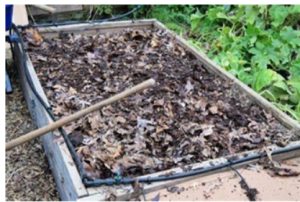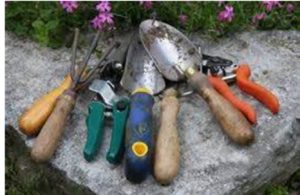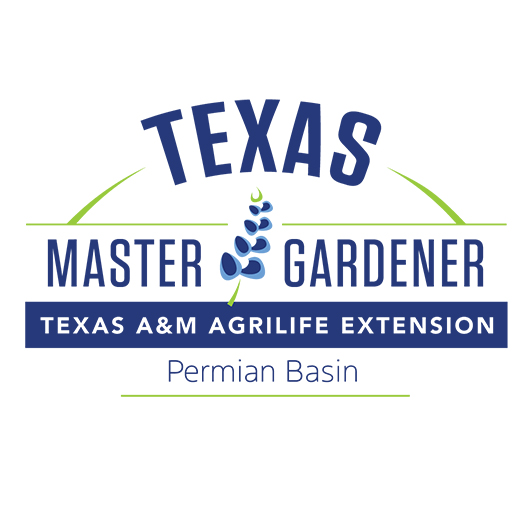By Debbie Roland
Master Gardener
Winter is here and the hard freezes have hit. That means it almost time for the annual garden cleanup. The first of February is usually the perfect time for this. I try to leave the plants that have died back until then so that the birds, bugs and insects have a place to winter. They will clean up the seeds and berries that have dropped off as well.
Start with removing weeds and dead plants. I always leave the leaves in place. They decay and make great onsite compost. If you aren’t comfortable with leaving the fallen leaves, add them to your compost bin.
Next cut back your perennials. I try to leave about 8” to 12” above the ground.

Annuals will not come back so pull them up, roots and all and send to the compost bin. If you know that a plant did not grow well and could possibly be diseased, don’t add any of those to the pile. It is best to bag those and get rid of them. The compost may not get hot enough to kill some pests and pathogens.
Ornamental grasses should be cut back each year. I use an electric hedge trimmer for this chore. Simply cut them back to about a 12” to 18” in the shape of a mound. They will come back beautifully.
Then start (or continue) to amend your soil. Add compost, aged manure, bone meal, or even the potting soil you used this past year in your pots. I occasionally dig a hole about 12” deep in my garden beds and bury my kitchen scraps. It draws the worms and other bugs to help in the decomposition process which is a win-win for that bed in the spring.

Finally, add mulch to protect the plants you have cut back. As the mulch decomposes it will help your soil as well. All this effort will get you out of the house and give you a great start for the 2023 gardens.
I keep a spray bottle with a mixture of bleach (10%) and water on my work table. Be sure to mark what is in the bottle on the outside with a permanent marker. I rinse and then clean all my hand tools and shovels, hoes, etc. with the bleach mixture. We don’t want to take this year’s problems into next year’s garden.
If you have questions, call the AgriLife office in Odessa at 498-4071 or in Midland at 686-4700.
Additional information, and our blog for access to past articles, is available at westtexasgardening.org. Click on “Resources.”




